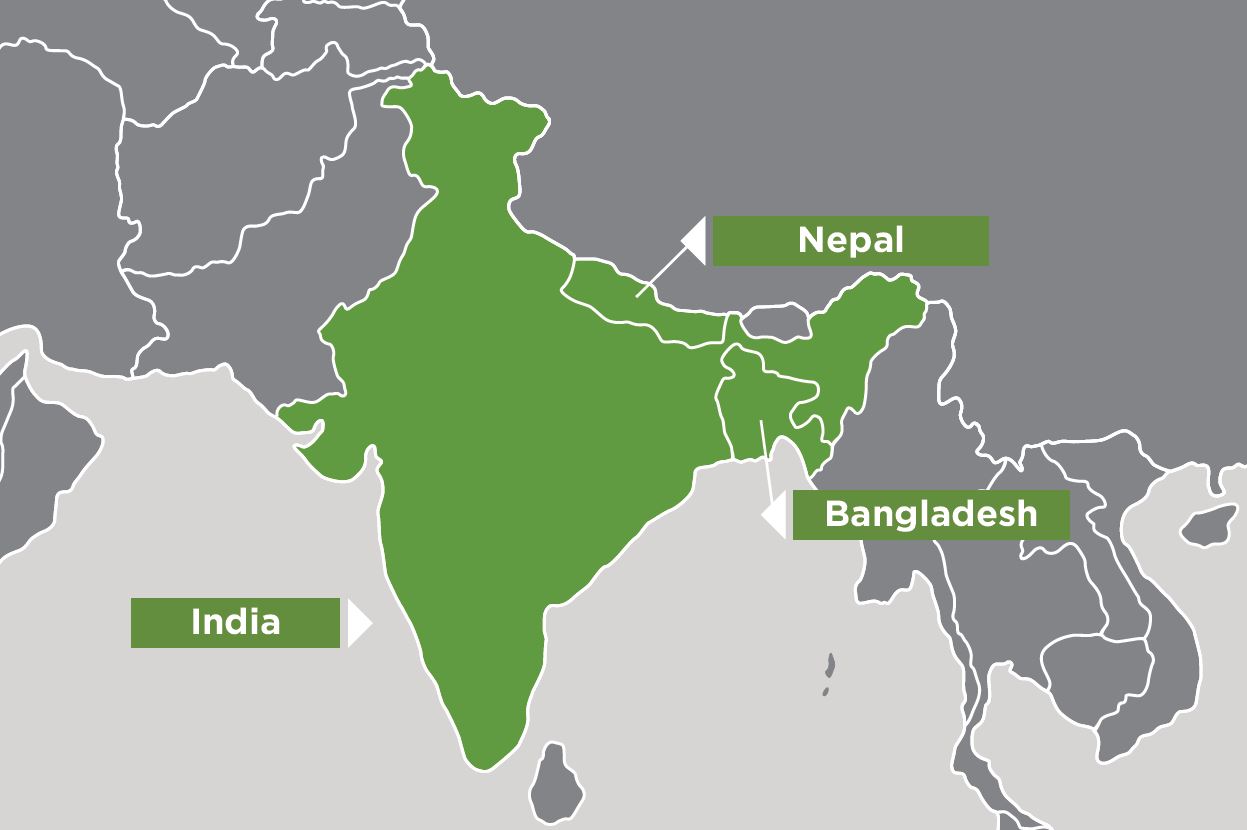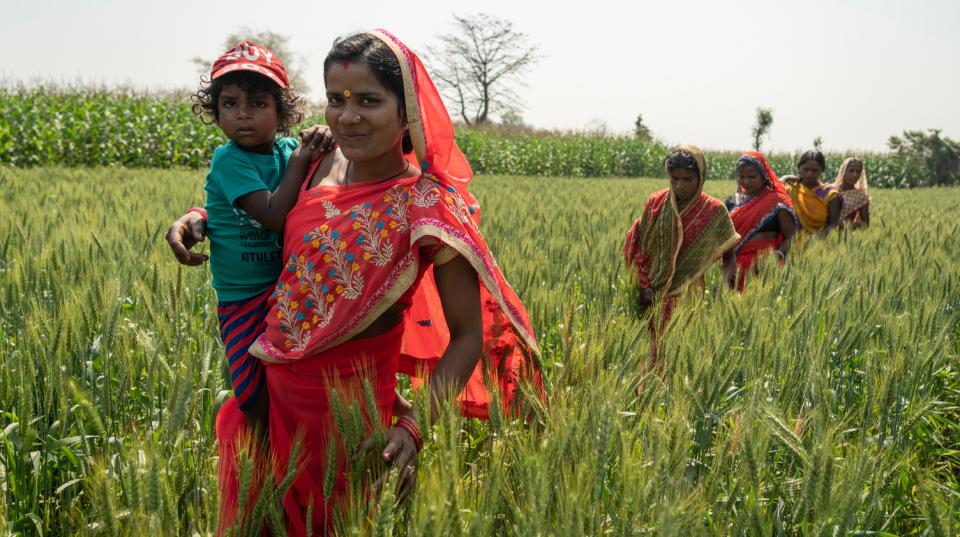Overview
This project is improving the productivity, income and food security of smallholder farming households in the Eastern Gangetic Plains.
Climate change has brought new challenges to reducing poverty in the Eastern Gangetic Plains (EGP) region of Bangladesh, India and Nepal, home to the world’s largest concentration of poor people.
The governments of the three countries, in partnership with international agencies, have strengthened efforts to increase productivity in their respective agriculture sectors. Organisations have invested heavily in improving farming systems and the livelihoods of farmers in the region. Farming system innovations, encompassing new technologies, farm management practices and marketing arrangements, have also been introduced.
However, the uptake and impacts of introduced innovations vary significantly outside immediate program or project areas, even for innovations with excellent potential. This low level of adoption and adaptation applies to many types of innovations in South Asia but is particularly relevant for innovations, such as conservation agriculture-based sustainable intensification. This project aims to provide a better understanding of behavioural economics and its applications in farm management decision-making.
Expected outcomes
- Critical information on farm-household decision-making allowing policy-makers and development practitioners and agencies (including ACIAR) to better target interventions.
- Enhanced delivery of extension services and complementary support needed by farmers to increase the uptake and efficacy of farming systems innovations, resulting in increased productivity, higher incomes and enhanced food security of farm-households.
- About 66,000 farm-households adopting conservation agriculture sustainable intensification technologies within 15 years of project implementation, with an estimated impact on smallholder livelihoods of about $110 million.
- Reduced rice straw burning and CO2 equivalent emission.
- Women making up about one-third of the beneficiaries, with significant flow-on effects expected on household welfare.
Summary of outcomes to date
2021–22
Understanding farm-household management decision making for increased productivity in the EGP Viswavidyalaya, conducted their first field experiment using Randomised Control Trial to test whether pre-commitment can increase the adoption of Conservation Agriculturebased Sustainable Intensification (CASI) technologies via machine service provision. The experiment involved 479 farmers cultivating maize, wheat, mustard, lentil, and summer paddy during the Rabi 2020/21 season in Coochbehar and Malda, West Bengal, India. Results showed that the stated preference of farmers to contract CASI service increased by 12% with pre-commitment (Treatment 1) and by 30% with pre-commitment with microincentive for clustered farmers (Treatment 2). The revealed preference of farmers contracting CASI service reached 52% among the first treatment while 35% of farmers from the second treatment formed seven clusters to avail the micro-incentive offer for CASI machine service provision. Behavioural insights suggest that pre-commitment with service providers can increase CASI adoption and while there is higher interest among farmers to avail the micro-incentive offer for clustered farms, due to varying Rabi crops planted, clustering may not be a viable option.
A follow-up field experiment will involve testing farmers’ uptake of CASI technologies with formal versus verbal pre-commitment agreements. Other field experiments will involve testing whether social proof, self-enhancement motivation via competition, framing messages using herd behaviour and gender lens, field visits, protocol, video training, and nudging farmers via message reinforcement and reminders can increase adoption of CASI and other technologies in South Asia.





